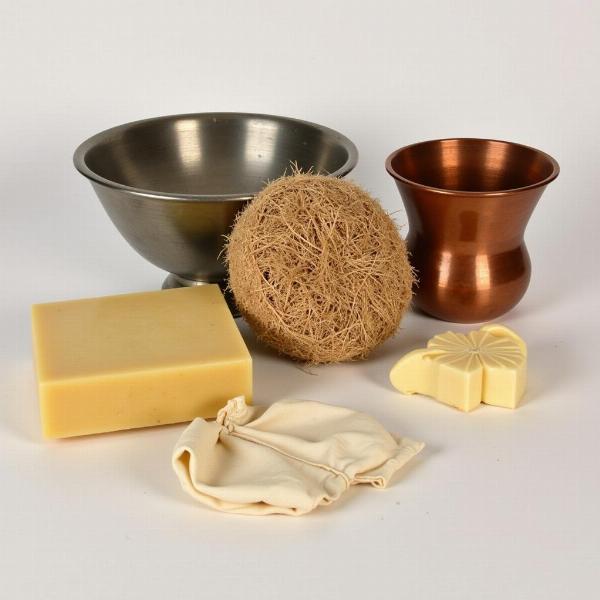Understanding the meaning and cultural significance of washing dishes in Hindi provides valuable insights into Indian culture. “Washing dishes” in Hindi can be translated in several ways, depending on the context and the specific items being washed. This guide explores the various Hindi translations, cultural nuances, and practical aspects of this everyday chore.
Exploring Hindi Translations for “Washing Dishes”
“Washing dishes” doesn’t have a single, direct equivalent in Hindi. Instead, several terms capture different aspects of the activity:
-
“Bartan dhona” (बर्तन धोना): This is the most common and versatile term, referring to washing all types of utensils. “Bartan” (बर्तन) means utensils, and “dhona” (धोना) means to wash.
-
“Bartanon ki safai karna” (बर्तनों की सफाई करना): This phrase emphasizes the cleaning aspect, translating to “cleaning the utensils.” “Safai” (सफाई) means cleanliness.
-
“Jhoothe bartan dhona” (जूठे बर्तन धोना): This specifically refers to washing dishes that have been used for eating, implying they are “jootha” (जूठा), or ritually impure after being touched by someone’s mouth. This term reflects the importance of purity in Hindu culture.
-
“Bartan manjha karna” (बर्तन मांझना): This term, primarily used in certain regions of India, specifically refers to scrubbing or scouring utensils. “Manjha” (मांझना) implies a more vigorous cleaning action.
Cultural Context of Washing Dishes in India
Washing dishes in India goes beyond a mere chore; it’s often imbued with cultural and religious significance. In many households, specific rules and traditions dictate who washes dishes, when, and how. For instance, in some families, women traditionally handle this task, while in others, it might be a shared responsibility. Furthermore, the concept of “jootha” influences the handling of used utensils, often requiring immediate cleaning or segregation.
Practical Tips for Washing Dishes the Indian Way
Traditional Indian kitchens often employ simple yet effective methods for washing dishes:
-
Using natural cleansers: Ingredients like ash, lemon, and baking soda are frequently used for their cleaning and antibacterial properties.
-
Scrubbing with natural fibers: Coconut coir or jute scrubbers are preferred over synthetic ones.
-
Air drying: Dishes are often air-dried on racks or mats, promoting hygiene and avoiding the need for towels.
 Traditional Indian Dish Washing Tools
Traditional Indian Dish Washing Tools
How Do You Say “Sink” in Hindi?
The most common word for “sink” in Hindi is “sink” (सिंक) itself, adopted from English. However, other terms like “basin” (बेसिन) or “washbasin” (वॉशबेसिन) are also frequently used, especially when referring to smaller sinks. In more traditional settings, the term “nal” (नल) might be used to refer to the tap or faucet area where dishes are washed.
Washing Dishes Before and After Meals
In many Indian households, dishes are rinsed or soaked immediately after use to prevent food from sticking. This practice makes the actual washing process easier later. daily chores meaning in hindi often involve washing dishes both before and after meals to maintain cleanliness and hygiene. This distinction is often less explicit in the language but reflected in the practice itself. what is the meaning of sink in hindi becomes relevant in this context as it is the place where this pre- and post-meal cleaning occurs.
Expert Insights
Dr. Anjali Sharma, Cultural Anthropologist, shares: “The act of washing dishes in India is deeply intertwined with social and religious customs. Understanding these nuances provides a glimpse into the rich tapestry of Indian culture.”
Mrs. Lakshmi Devi, Homemaker, adds: “Washing dishes is a daily ritual in our home. We use traditional methods and natural ingredients, passed down through generations, to ensure cleanliness and purity.”
Conclusion
Washing dishes, a seemingly mundane task, carries cultural significance in India. From the various Hindi translations to the traditional practices, this chore reveals deeper values and beliefs. Understanding the “washing dishes meaning in Hindi” provides valuable insights into Indian culture and its emphasis on cleanliness, purity, and resourcefulness. washing utensils meaning in hindi emphasizes the practical aspect while the cultural significance adds depth to this everyday activity.
FAQ
- What is the most common way to say “washing dishes” in Hindi? Bartan dhona (बर्तन धोना) is the most common and versatile term.
- What does “jootha” mean in the context of washing dishes? “Jootha” (जूठा) refers to utensils that have been used for eating and are considered ritually impure.
- What are some traditional Indian dishwashing methods? Using natural cleansers like ash, lemon, and baking soda, along with natural fiber scrubbers.
- What is the Hindi word for “sink”? While “sink” (सिंक) is commonly used, “basin” (बेसिन) and “washbasin” (वॉशबेसिन) are also used. In traditional contexts, “nal” (नल) might refer to the tap area.
- Why is washing dishes important in Indian culture? It reflects values of cleanliness, purity, and resourcefulness. degchi meaning in hindi provides an example of a specific utensil commonly washed. before food meaning in hindi relates to the pre-meal cleaning rituals often associated with dishwashing.
Meaning-Hindi.in is your one-stop solution for all your Hindi translation needs. We offer a wide range of professional translation services, including business and commercial document translation, certified and legal document translation, technical and user manual translation, website and localization translation, educational and academic document translation, and express translation services. Our team of expert Hindi translators ensures accurate and culturally sensitive translations for your specific needs. Contact us today for a free quote! Email: [email protected], Phone: +91 11-4502-7584. Meaning-Hindi.in is your trusted partner for bridging the language gap.